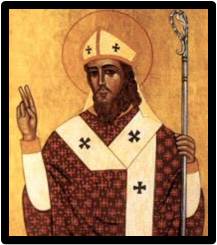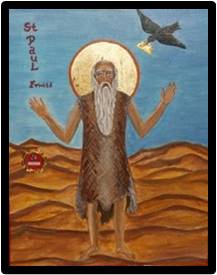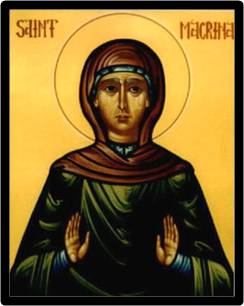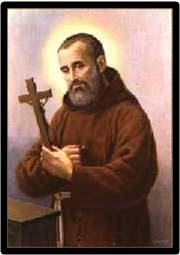JANUARY 13 - ST. HILARY OF POITIERS

In the early centuries of Christianity, there were still many people who did not believe in God as we do. They believed that there were many gods, some more powerful than others. These people were not bad. They just did not know any better. They were called pagans.
St. Hilary was born into just such a family in Poitiers, a town in France. His family was rich and well-known. Hilary received a good education. He married and raised a family.
Through his studies, Hilary learned that a person should practice patience, kindness, justice and these good acts would be rewarded in the life after death.
Hilary’s studies also made him realize that there could only be one God who is eternal, all-powerful and good. He read the Bible for the first time. When he came to the story of Moses and the burning bush, Hilary was very impressed by the name God gave himself: I AM WHO AM.
Hilary read the writings of the prophets, too. Then he read the whole New Testament. By the time he finished, he was completely converted to Christianity and was baptized.
Hilary was such a good Catholic that he was made bishop. This did not make his life easy because the emperor was interfering in Church matters. When Hilary refused to do wrong as the emperor commanded him, he was sent away from the country.
Hilary did not let this worry him, instead with great courage and patience he accepted the emperor’s punishment calmly and used the time to write books explaining the faith to the pagans.
Since he was becoming famous and many pagans were converting to Christianity, Hilary’s enemies asked the emperor to send him back to his hometown. There he would not be able to create too much trouble.
So Hilary returned to Poitiers in 360. He continued writing and teaching the people about the faith. Hilary died eight years later, at the age of fifty-two. His books are used by the Church even today. That is why he is called a Doctor of the Church.



